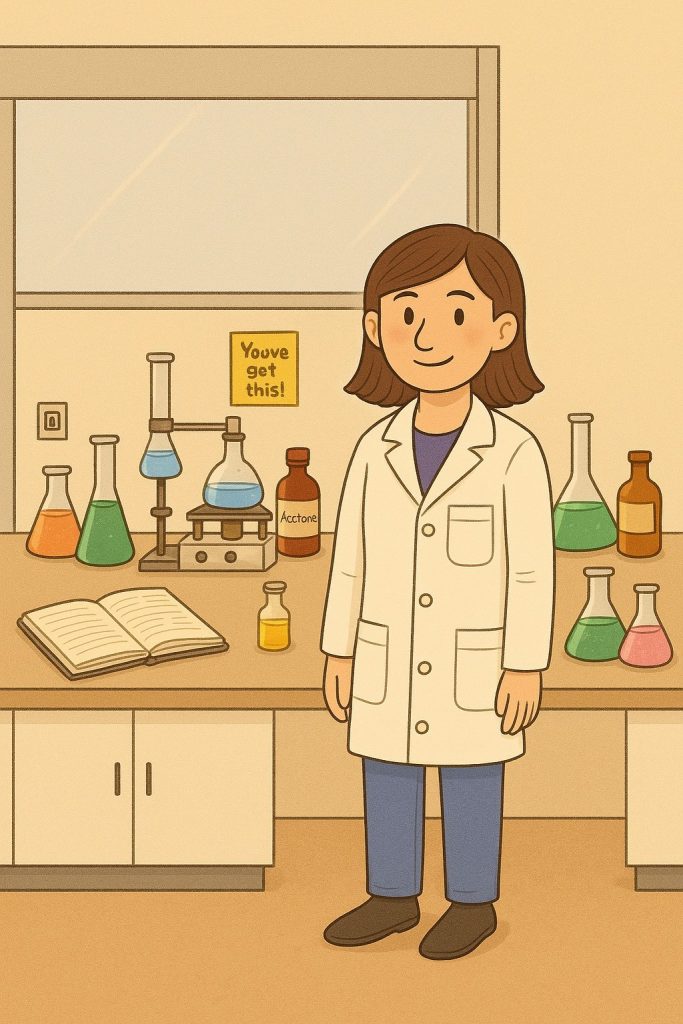If you had told me a few years ago that one of the greatest challenges of my PhD wouldn’t be designing multistep syntheses or understanding the behavior of distorted aromatic systems, but rather staying mentally resilient through long stretches of uncertainty, I might have been surprised. But now, halfway through my doctoral studies in organic chemistry, I understand this reality all too well.
As a researcher in Dr. Graham Bodwell’s group, my work focuses on synthesizing nonplanar polyaromatic compounds, often through painstaking multi-step processes. These projects are thrilling on paper—novel structures, potential applications, and lots of room for discovery. But in practice, they can feel like emotional marathons. You plan every step meticulously, work day after day in the lab, and then… the reaction doesn’t work. Or it works, but gives such a low yield that you question whether you’re even on the right track. Weeks of effort can dissolve with a single failed TLC plate.

This cycle of hope and disappointment is common in experimental science, but we don’t always talk about its psychological toll. In my own experience, the buildup of “not-yet-successes” can feel heavy. There were times when I felt exhausted, stuck in a loop of trial and error, questioning my capabilities and even the value of my work.
What helped me—slowly but surely—was learning to reframe failure not as an endpoint, but as data. I began treating unsuccessful reactions not as personal setbacks, but as part of the scientific process. This mindset shift wasn’t immediate, and it didn’t come naturally. But over time, it helped me maintain perspective. A failed synthesis wasn’t a reflection of me; it was a clue about what not to do next.
Equally important was acknowledging how essential it is to step away. During some of my hardest periods, I rediscovered the joy of small things: sketching reaction mechanisms with a touch of whimsy, decorating our living room wall with hand-painted art, or simply sharing tea and conversation with my husband after a long day. These weren’t distractions from research—they were reminders that I am more than my results. My creativity, my relationships, and my sense of purpose all fuel the person behind the lab coat.
I also found unexpected comfort in community. Whether it was a candid conversation with a labmate about our shared frustrations or mentoring a younger student and realizing how far I’ve come, these moments grounded me. They reminded me that resilience isn’t just about pushing through; it’s also about reaching out.
For anyone pursuing a graduate degree—especially in a field where failure is frequent and progress can feel glacial—I want to say: it’s okay to feel overwhelmed. It’s okay to rest. And it’s okay to protect your mental health just as fiercely as you protect your research time.
Today, I’m still working on those difficult molecules. I’m still revising my reaction conditions and rethinking routes when things don’t go as planned. But I’m also more attuned to my limits, more compassionate toward myself, and more committed than ever to building a career that values both scientific achievement and human well-being.
Because in the end, no molecule is worth losing yourself over. And the best discoveries often come when you finally learn how to breathe between the steps.